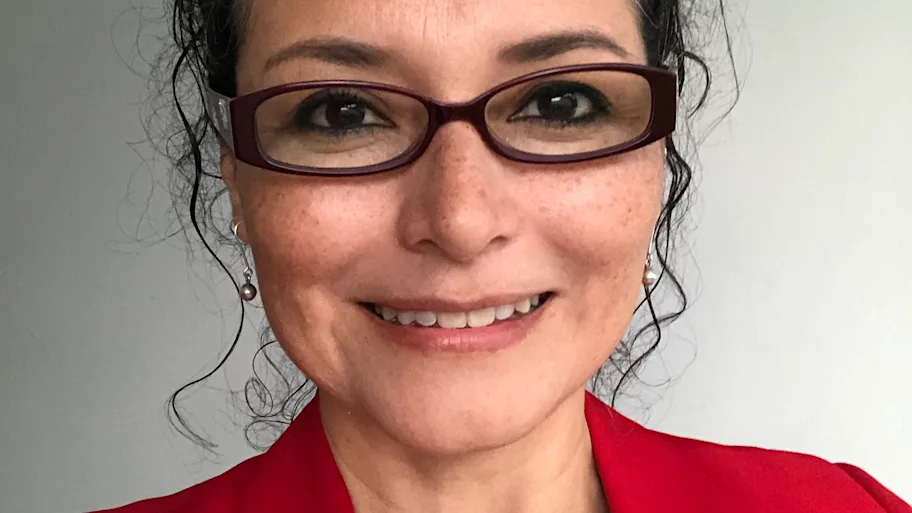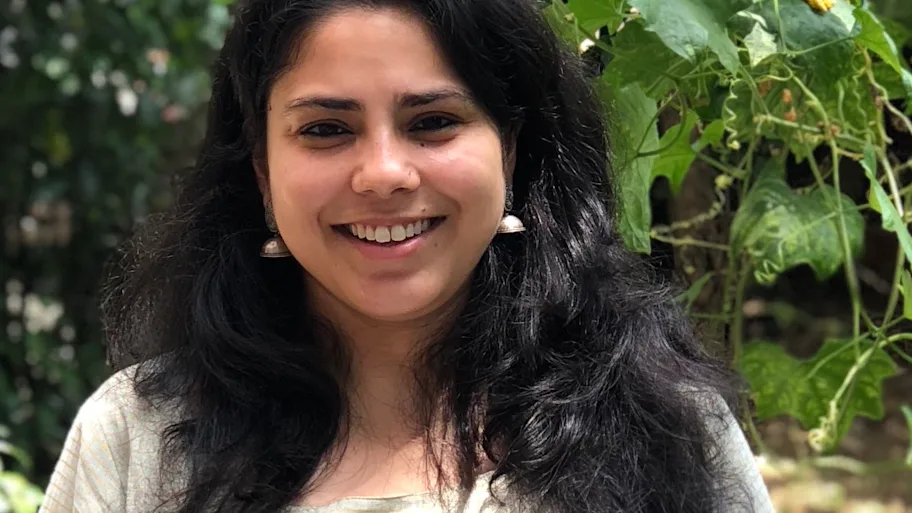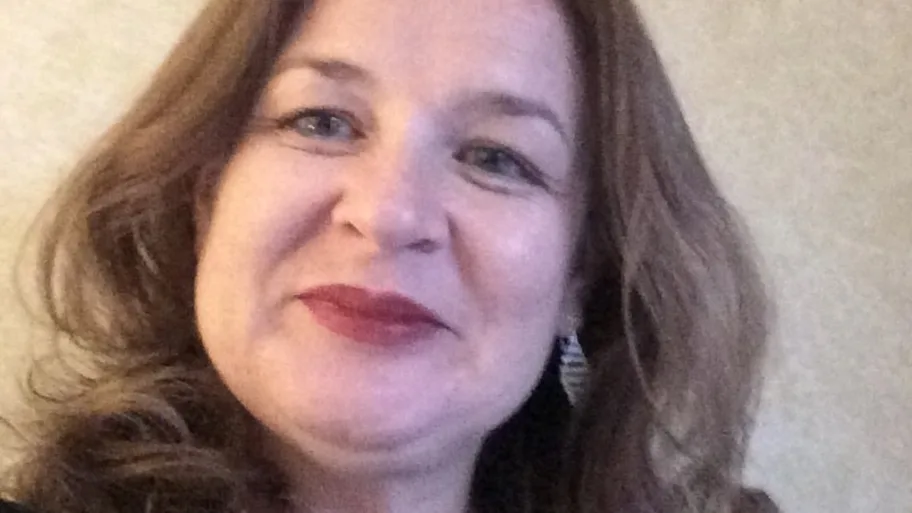
- Science news
- Frontiers news
- Ioly Kotta-Loizou – The role of mycoviruses for the future of disease in medicine and agriculture
Ioly Kotta-Loizou – The role of mycoviruses for the future of disease in medicine and agriculture
Author: Jennifer Broderick
In honor of this year’s World Antimicrobial Resistance Awareness Week (WAAW), Professor Ioly Kotta-Loizou discussed her research and experience in the field of mycovirology. Ioly is head of Crop Protection and Climate Change (CPCC), co-director of the Centre for Agriculture, Food and Environmental Management (CAFEM) research at the University of Hertfordshire, and an honorary lecturer at Imperial College London and the University of Manchester. Ioly also holds several editorial roles with Frontiers, including associate editor for Frontiers in Virology and Frontiers in Cellular and Infection Microbiology. With over 15 years of experience in the field of molecular microbiology, Ioly's research is focused on viruses, bacteria, and fungi, with a particular interest in mycoviruses for the directed manipulation of fungi in remediation and biotechnology.
Antimicrobial resistance occurs when bacteria, viruses, fungi, and parasites change over time and no longer respond to medicines, making infections harder to treat, threatening effective prevention and treatment.

Our discussion began with an exploration of Ioly's journey into the field of mycovirology. Ioly shared she has always had an interest in viruses, as philosophically, they are “between living and non-living matter.” However, as an undergraduate at the National and Kapodistrian University of Athens, Greece, there were no virology courses, and the subject was not explored until the end of her studies, through an undergraduate dissertation on fungal viruses, before going directly to a PhD course.
At the Hellenic Pasteur Institute in Athens, Greece, Ioly studied a PhD in human Hepatitis C Virus (HCV). In 2011 with the discovery of antiviral tablets for HCV, the PhD topic became redundant, triggering a pivot back to fungal viruses. With a European Union Erasmus fellowship, Ioly travelled to the UK for a six-month placement at Imperial College London. Over ten years later, Ioly remains in the UK, teaching and researching mycoviruses alongside bacteria and microbiology across numerous UK universities, including University of Hertfordshire, Imperial College London, University of Manchester, and Coventry University. Her main motivation is studying how microorganisms interact with their environment, including hosts, and “how we can use pathogenic microorganisms in various applications that would benefit us.”
Viruses can be beneficial to their hosts and/or humans
Viruses are obligate parasites, meaning they require a host to replicate and reproduce. We see three major types of symbiosis in virology; parasitism, commensalism, and mutualism. Ioly reflected on how, by default “when we think of viruses, we think of cases of parasitism mostly,” such as the common cold, a flu, or COVID-19. These are viruses that take advantage of their host cells and cause damage and/or illness.
In contrast, commensal viruses replicate within their host without harming or affecting it, and mutualistic viruses benefit and offer advantages to their host. Within her research, Ioly looks at how to get viruses "to behave in such a way to maximize positive impacts for humans." Thus, she believes naturally occurring viruses do not always deserve their name derived from the Latin word for ‘poison’ or ‘venom.’
An investment in the future
Currently, scientists and funding focus on parasitic viruses in humans, animals, plants, or bacteria that kill or cause damage. Here, we see immediate impact, but Ioly wants to encourage long-term thinking of different ways we can study and use viruses.
Speaking on the 2024 focus for World Antimicrobial Resistance Awareness Week (WAAW) – Educate. Advocate. Act now. – Ioly expressed the importance of people understanding that anti-microbial resistance “is a global problem and it should be addressed holistically, because we are past the time we can isolate specific problems in the world. Everything interacts with everything.” Following the WHO initiative of One Health, she expressed we need “an integrated approach to preserve the health of humans, animals, and plants and whole ecosystems, because they're all linked and interconnected.” Being mindful and aware of what happens to the environment, and how it can directly impact us, will help us ensure our future and health.
This point was then illustrated with the “very recent and very painful” example of COVID-19, when a virus that originally affected animals was passed to humans. When we first saw humans infected with COVID-19, a parasitic virus, it displayed hypervirulence i.e., induced severe disease and illness quickly. This hypervirulent behavior causes more host-death, ultimately killing the virus itself, therefore it had to adapt to be less virulent to survive and spread more, in what virologists call the ‘virulence transmission trade off.’
Working towards something
Reflecting on the difficult time we faced during COVID-19, Ioly spoke on how she kept her head above water as a virologist by volunteering at the government Lighthouse Laboratory, a high throughput facility for testing and tracing.
We then delved deeper into the 2024 WAAW focus, and how shifting the way we talk and think about viruses will help educate and open the fields of research. We currently use viruses to create vaccines and therapeutics, thus, stepping away from the narrative of viruses as poison or venom, and towards this focus on medicine, will help influence the field. Ioly hopes that the way we currently make vectors from human, animal, plant, and bacterial viruses will someday be applicable to mycoviruses too, expanding our arsenal of medicine and helping to fight antimicrobial resistance. This direction could open “endless possibilities” and is something she is “very much looking forward to seeing in the future.”
The end goal
When considering the timeline, Ioly envisions decades of work to open the door to these “endless possibilities” in the field of mycovirology. The first breakthrough in the field was in the 1970s, with the case of Cryphonectria hypovirus 1 (CHV-1) used to control chestnut blight in Europe and North America. When the chestnut fungus was infected with CHV-1, it caused hypovirulence i.e., a reduction in virulence, resulting in a non-lethal infection of the chestnut trees.
This work showed that “using a natural virus can be successful,” particularly in plants, but the work and research required to reach genetic modification of mycoviruses for use in humans and animals is very long-term. Ioly would be “very happy to reach that point before I retire.”
Collaboration is key
A large blocker currently preventing the advancement of the mycovirology field is funding. Due to a limited knowledge and understanding of mycoviruses, research is relatively “old fashioned” and basic, as opposed to applied research. As such, Ioly tries to collaborate with scientists from other disciplines, including human, plant, and insect virologists, to try and use tools from their fields to advance mycovirology.
A shift for women in virology
Our conversation then shifted to Ioly's experience as a woman in the field of virology. Starting her career in Greece, she reflected on the lack of gender awareness at that time, noting that the gender gap was “not something that was discussed within the university or outside.” Her early experience was one with poor behaviors from men, including harassment and violence towards “myself, women I love, and women I know.”
After moving to the UK, Ioly's experience shifted. Whilst misogyny and harassment still exist, conversations around equal opportunities and the pay gap are happening. She was invited to join the Women in SET group at Imperial College London, as a panelist on positive discrimination, and how to balance your personal life with an academic career. Thus, Ioly has seen a positive shift in the experience for women in virology throughout her career and has now progressed to be in the 0.1% of UK female academics who have achieved professorship before 40 years of age.
Removing the glass ceiling
Given the negative experience at the start of Ioly’s career, we discussed how this has influenced how she now champions women from her position. Primarily, Ioly wants to tell women’s stories, be supportive, and “offer the next generation of students, especially female students, something that I didn’t really have; a female mentor.” During her time as an academic, Ioly credits Dr Sandra Anagnostakis for inspiring her work. Dr Anagnostakis played a leading role in the early days of mycovirology, particularly through her work on CHV-1 and the chestnut blight fungus, and substantially contributed towards establishing this niche area of science. CHV-1 is the first and, to date, the only mycovirus that has been used as a biological control agent, illustrating the enormous, yet unrealized potential of mycovirology.
Ioly concluded that now she has achieved her seniority within academia, her focus is on the next generation, to create an environment where they are productive and enjoy research. She commented that research by itself is challenging enough without a landscape of personal challenges for students. “I want my students to have a good work life balance, as I think that is when they give their best to science. You need to be healthy, physically, mentally, and emotionally, to reach your full potential.”
Frontiers is a signatory of the United Nations Publishers COMPACT. This interview has been published in support of the nine planetary boundaries.






